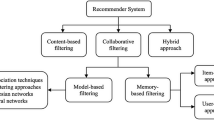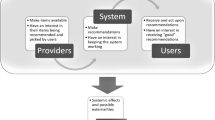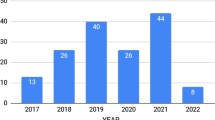Abstract
As a method of information filtering, the Recommender System (RS) has gained considerable popularity because of its efficiency and provision of the most superior numbers of useful items. A recommender system is a proposed solution to the information overload problem in social media and algorithms. Collaborative Filtering (CF) is a practical approach to the recommendation; however, it is characterized by cold start and data sparsity, the most severe barriers against providing accurate recommendations. Rating matrices are finely represented by Nonnegative Matrix Factorization (NMF) models, fundamental models in CF-based RSs. However, most NMF methods do not provide reasonable accuracy due to the dispersion of the rating matrix. As a result of the sparsity of data and problems concerning the cold start, information on the trust network among users is further utilized to elevate RS performance. Therefore, this study suggests a novel trust-based matrix factorization technique referred to as CFMT, which uses the social network data in the recommendation process by modeling user’s roles as trustees and trusters, given the trust network’s structural information. The proposed method seeks to lower the sparsity of the data and the cold start problem by integrating information sources including ratings and trust statements into the recommendation model, an attempt by which significant superiority over state-of-the-art approaches is demonstrated an empirical examination of real-world datasets.




Similar content being viewed by others
References
Ahmadian S, Meghdadi M, Afsharchi M (2018) A social recommendation method based on an adaptive neighbor selection mechanism. Inf Process Manage 54:707–725
Alexandridis G, Siolas G, Stafylopatis A (2013) A biased random walk recommender based on Rejection Sampling, 2013 IEEE/ACM International Conference on Advances in Social Networks Analysis and Mining (ASONAM 2013), Niagara Falls, 2013, pp. 648–652, https://doi.org/10.1145/2492517.2492653
Alexandridis G, Siolas G, Stafylopatis A (2015) Accuracy versus novelty and diversity in recommender systems: a nonuniform random walk approach. In: Ulusoy Ö, Tansel A, Arkun E (eds) Recommendation and search in social networks. Lecture Notes in Social Networks. Springer, Cham. https://doi.org/10.1007/978-3-319-14379-8_3
Alexandridis G, Siolas G, Stafylopatis A (2017) Enhancing social collaborative filtering through the application of non-negative matrix factorization and exponential random graph models. Data Min Knowl Disc 31:1031–1059
Anand D, Bharadwaj KK (2011) Utilizing various sparsity measures for enhancing accuracy of collaborative recommender systems based on local and global similarities. Expert Syst Appl 38(5):5101–5109
Ar Y, Bostanci E (2016) A genetic algorithm solution to the collaborative filtering problem. Expert Syst Appl 61:122–128
Ayub M, Ghazanfar MA, Mehmood Z et al (2020) Unifying user similarity and social trust to generate powerful recommendations for smart cities using collaborating filtering-based recommender systems. Soft Comput 24:11071–11094
Bobadilla J, Ortega F, Hernando A, Gutiérrez A (2013) Recommender systems survey. Knowl-Based Syst 46:109–132
Chen G, Wang F, Zhang C (2009) Collaborative filtering using orthogonal nonnegative matrix tri-factorization. Inf Process Manage 45(3):368–379
Chen CC, Wan Y-H, Chung M-C, Sun Y-C (2013a) An effective recommendation method for cold start new users using trust and distrust networks. Inf Sci 224:19–36
Chen L, Zeng W, Yuan Q (2013b) A unified framework for recommending items, groups and friends in social media environment via mutual resource fusion. Expert Syst Appl 40(8):2889–2903
Cui L, Huang W, Yan Q, Yu FR, Wen Z, Lu N (2018) A novel context-aware recommendation algorithm with two- level SVD in social networks. Futur Gener Comput Syst 86:1459–1470
De Lathauwer L, De Moor B, Vandewalle J (2000) A multilinear singular value decomposition. SIAM J Matrix Anal Appl 21(4):1253–1278
Del Corso GM, Romani F (2019) Adaptive nonnegative matrix factorization and measure comparisons for recommender systems. Appl Math Comput 354:164–179
Eirinaki M, Gao J, Varlamis I, Tserpes K (2018) Recommender systems for large-scale social networks: a review of challenges and solutions. Futur Gener Comput Syst 78:413–418
Feltoni Gurini D, Gasparetti F, Micarelli A, Sansonetti G (2018) Temporal people-to-people recommendation on social networks with sentiment-based matrix factorization. Futur Gener Comput Syst 78:430–439
Gu Q, Zhou J, Ding C (2010) Collaborative filtering: Weighted nonnegative matrix factorization incorporating user and item graphs. Proceedings of the 2010 SIAM International Conference on Data Mining, 199–210, https://doi.org/10.1137/1.9781611972801.18
Guo G, Zhang J, Yorke-Smith N (2013) A novel Bayesian similarity measure for recommender systems. In Proceedings of the Twenty-Third international joint conference on Artificial Intelligence (IJCAI’13). AAAI Press, 2619–2625
Guo G, Zhang J, Thalmann D (2014a) Merging trust in collaborative filtering to alleviate data sparsity and cold start. Knowl-Based Syst 57:57–68
Guo, G., Zhang, J. D. Thalmann and Yorke-Smith, N.,(2014). "ETAF: An extended trust antecedents framework for trust prediction, “2014 IEEE/ACM International Conference on Advances in Social Networks Analysis and Mining (ASONAM 2014), pp. 540–547, https://doi.org/10.1109/ASONAM.2014.6921639
Guo G, Zhang J, Yorke-Smith N (2015) Trustsvd: Collaborative filtering with both the explicit and implicit influence of user trust and of item ratings. Proceedings of the Twenty-Ninth AAAI Conference on Artificial Intelligence, 123–129. https://doi.org/10.5555/2887007
He X, Liu B, Chen K (2018) ITrace: an implicit trust inference method for trust-aware collaborative filtering. AIP Conference Proceedings, 1955, https://doi.org/10.1063/1.5033766
Hernando A, Bobadilla J, Ortega F (2016) A non negative matrix factorization for collaborative filtering recommender systems based on Bayesian probabilistic model. Knowl-Based Syst 97:188–202
Hofmann T (2004) Latent semantic models for collaborative filtering. ACM Trans Inf Syst (TOIS) 22(1):89–115
Hsieh MY, Chou WK, Li KC (2017) Building a mobile movie recommendation service by user rating and APP usage with linked data on Hadoop. Multimedia Tools Appl 76(3):3383–3401
Jamali M, Ester M (2010) A matrix factorization technique with trust propagation for recommendation in social networks. RecSys '10: Fourth ACM Conference on Recommender Systems, 135–142. https://doi.org/10.1145/1864708.1864736
Kalaï A, Zayani CA, Amous I, Abdelghani W, Sèdes F (2018) Social collaborative service recommendation approach based on user’s trust and domain-specific expertise. Futur Gener Comput Syst 80:355–367
Koren Y (2008) Factorization meets the neighborhood: a multifaceted collaborative filtering model. KDD08: The 14th ACM SIGKDD International Conference on Knowledge Discovery and Data Mining, 426–434. https://doi.org/10.1145/1401890.1401944
Koren Y, Bell R (2011) Advances in Collaborative Filtering. In: Ricci F., Rokach L., Shapira B., Kantor P. (eds) Recommender Systems Handbook. Springer, Boston. https://doi.org/10.1007/978-0-387-85820-3_5
Kurucz M, Benczúr AA, Csalogány K (2007) Methods for large scale SVD with missing values. ACM KDDCup
Lai C-H, Liu D-R, Lin C-S (2013) Novel personal and group-based trust models in collaborative filtering for document recommendation. Inf Sci 239:31–49
Lee DH, Brusilovsky P (2017) Improving personalized recommendations using community membership information. Inf Process Manage 53(5):1201–1214
Lee DD, Seung HS (2001) Algorithms for nonnegative matrix factorization. NIPS'00: Proceedings of the 13th International Conference on Neural Information Processing Systems, 533–541. https://doi.org/10.5555/3008751
Lee J, Kim S, Lebanon G, Singer Y (2013) Local low-rank matrix approximation. Proceedings of the 30th International Conference on Machine Learning, in PMLR, 28(2): 82–90, https://dl.acm.org/journal/jmlr
Li G, Chen Y, Zhang Z, Zhong J, Chen Q (2018) Social personalized ranking with both the explicit and implicit influence of user trust and of item ratings. Eng Appl Artif Intell 67:283–295
Lin C-J (2007) Projected gradient methods for nonnegative matrix factorization. Neural Comput 19(10):2756–2779
Lingam G, Rout RR, Somayajulu D (2017) Learning automata-based trust model for user recommendations in online social networks. Comput Electr Eng 66:174–188
Luo X, Zhou M, Xia Y, Zhu Q (2014) An efficient nonnegative matrix-factorization-based approach to collaborative filtering for recommender systems. IEEE Trans Ind Inf 10(2):1273–1284
Luo X, Zhou M, Li S, You Z, Xia Y, Zhu Q (2016) A nonnegative latent factor model for large-scale sparse matrices in recommender systems via alternating direction method. IEEE Trans Neural Netw Learning Syst 27(3):579–592
Ma H, Yang H, Lyu MR, King I (2008) Sorec: social recommendation using probabilistic matrix factorization, CIKM08: Conference on Information and Knowledge Management, 931–940. https://doi.org/10.1145/1458082.1458205
Ma H, King I, Lyu MR (2009) Learning to recommend with social trust ensemble. SIGIR '09: The 32nd International ACM SIGIR conference on research and development in Information Retrieval, 203–210. https://doi.org/10.1145/1571941
Ma H, Zhou D, Liu C, Lyu MR, King I (2011) Recommender systems with social regularization. WSDM'11: Fourth ACM International Conference on Web Search and Data Mining, 287–296. https://doi.org/10.1145/1935826
Ma X, Ma J, Li H, Jiang Q, Gao S (2018) ARMOR: a trust-based privacy-preserving framework for decentralized friend recommendation in online social networks. Futur Gener Comput Syst 79:82–94
Massa P, Avesani P Trust-aware recommender systems. Proceedings of the 2007 ACM conference on Recommender systems, 17–24
Mnih A, Salakhutdinov RR (2008) Probabilistic matrix factorization. In: NIPS'07: Proceedings of the 20th international conference on neural information processing systems, pp 1257–1264. https://doi.org/10.5555/2981562
Najafabadi MK, Mohamed A, Onn CW (2019) An impact of time and item influencer in collaborative filtering recommendations using graph-based model. Inf Process Manage 56(3):526–540
Narayanam R, Narahari Y (2011) A Shapley value-based approach to discover influential nodes in social networks. IEEE Trans Autom Sci Eng 8(1):130–147
Nayak SK, Panda SK (2018) A user-oriented collaborative filtering algorithm for recommender systems. In: 2018 Fifth international conference on parallel, distributed and grid computing (PDGC), Solan, India, pp 374–380. https://doi.org/10.1109/PDGC.2018.8745892
Nilashi M, Ibrahim O, Bagherifard K (2018) A recommender system based on collaborative filtering using ontology and dimensionality reduction techniques. Expert Syst Appl 92:507–520
Paatero P, Tapper U (1994) Positive matrix factorization: a nonnegative factor model with optimal utilization of error estimates of data values. Environmetrics 5(2):111–126
Panda SK, Bhoi SK, Singh M (2020) A collaborative filtering recommendation algorithm based on normalization approach. J Ambient Intell Human Comput 11:4643–4665
Parvin H, Moradi P, Esmaeili S (2018) A scalable and robust trust-based nonnegative matrix factorization recommender using the alternating direction method. Knowl-Based Syst 166:92–107
Parvin H, Moradi P, Esmaeili S (2019) TCFACO: trust-aware collaborative filtering method based on ant colony optimization. Expert Syst Appl 118:152–168
Paterek A (2007) Improving regularized singular value decomposition for collaborative filtering. In: Proceedings of KDD Cup and Workshop, San Jose, California
Sarwar B, Karypis G, Konstan J, Riedl J (2000) Application of dimensionality reduction in recommender system—a case study. https://apps.dtic.mil/sti/citations/ADA439541
Son LH (2015) HU-FCF++: a novel hybrid method for the new user cold-start problem in recommender systems. Eng Appl Artif Intell 41:207–222
Wang R, Cheng HK, Jiang Y, Lou J (2019) A novel matrix factorization model for recommendation with LOD-based semantic similarity measure. Expert Syst Appl 123:70–81
Wei J, He J, Chen K, Zhou Y, Tang Z (2017) Collaborative filtering and deep learning based recommendation system for cold start items. Expert Syst Appl 69:29–39. https://doi.org/10.1016/j.eswa.2016.09.040
Xu C (2018) A novel recommendation method based on social network using matrix factorization technique. Inf Process Manage 54(3):463–474
Xu Y, Yin W, Wen Z, Zhang Y (2012) An alternating direction algorithm for matrix completion with nonnegative factors. Front Math China 7(2):365–384
Yang B, Lei Y, Liu J, Li W (2017) Social collaborative filtering by trust. IEEE Trans Pattern Anal Mach Intell 39(8):1633–1647
Yuan Q, Zhao S, Chen L, Liu Y, Ding S, Zhang X, Zheng W (2009) Augmenting collaborative recommender by fusing explicit social relationships. In: Workshop on recommender systems and the social web, Recsys
Yuan Q, Chen L, Zhao S (2012) Augmenting collaborative recommenders by fusing social relationships: membership and friendship. In: Recommender systems for the social web. Intelligent Systems Reference Library, vol 32. Springer, Berlin, Heidelberg. https://doi.org/10.1007/978-3-642-25694-3_8
Author information
Authors and Affiliations
Corresponding author
Additional information
Publisher's Note
Springer Nature remains neutral with regard to jurisdictional claims in published maps and institutional affiliations.
Rights and permissions
About this article
Cite this article
khaledian, N., Mardukhi, F. CFMT: a collaborative filtering approach based on the nonnegative matrix factorization technique and trust relationships. J Ambient Intell Human Comput 13, 2667–2683 (2022). https://doi.org/10.1007/s12652-021-03368-6
Received:
Accepted:
Published:
Issue Date:
DOI: https://doi.org/10.1007/s12652-021-03368-6




